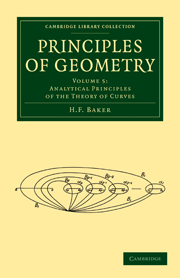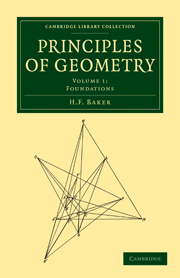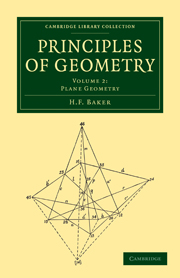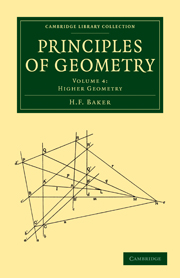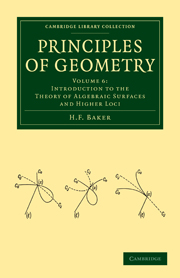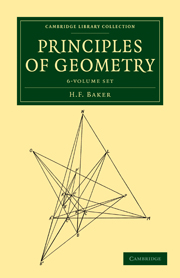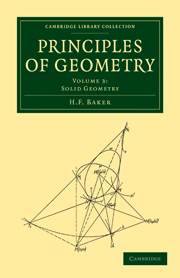Principles of Geometry
Henry Frederick Baker (1866–1956) was a renowned British mathematician specialising in algebraic geometry. He was elected a Fellow of the Royal Society in 1898 and appointed the Lowndean Professor of Astronomy and Geometry in the University of Cambridge in 1914. First published between 1922 and 1925, the six-volume Principles of Geometry was a synthesis of Baker's lecture series on geometry and was the first British work on geometry to use axiomatic methods without the use of co-ordinates. The first four volumes describe the projective geometry of space of between two and five dimensions, with the last two volumes reflecting Baker's later research interests in the birational theory of surfaces. The work as a whole provides a detailed insight into the geometry which was developing at the time of publication. This, the fifth volume, describes the birational geometry of curves.
Product details
October 2010Paperback
9781108017817
262 pages
216 × 140 × 15 mm
0.34kg
Available
Table of Contents
- Preface
- 1. Introductory account of rational and elliptic curves
- 2. The elimination of the multiple points of a plane curve
- 3. The branches of an algebraic curve. The order of a rational function. Abel's theorem
- 4. The genus of a curve. Fundamentals of the theory of linear series
- 5. The periods of algebraic integrals. Loops in a plane. Riemann surfaces
- 6. The various kinds of algebraic integrals. Relations among periods
- 7. The modular expression of rational functions and integrals
- 8. Enumerative properties of curves
- Index.

